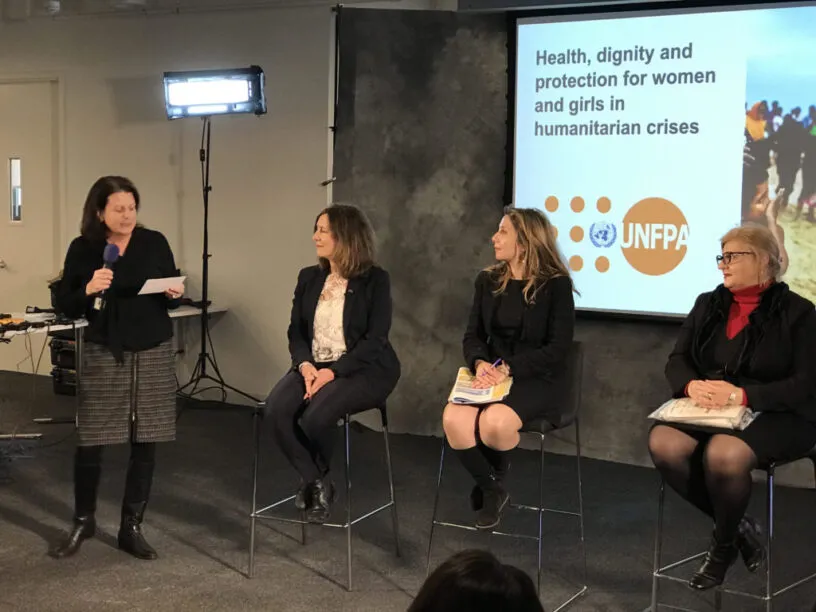International Women’s Day at Medidata

March 8 was International Women’s Day, and now more than ever, it’s important to reflect how far women have come and how much still needs to be done with major health issues for women around the world. I was honored to participate in Medidata’s International Women’s Day event, which featured an incredible panel from the UN Population Fund (UNFP).
My colleagues and I feel a special kinship with the UNFP team, which describes their mission as, “...using population data for policies and programmes to reduce poverty and to ensure that every pregnancy is wanted, every birth is safe, every young person is free of HIV/AIDS, and every girl and woman is treated with dignity and respect.”
We were thrilled to be joined by Dr. Henia Dakkak a specialist in reproductive health issues during and after international crisis, Raya Alchukr, a consultant in UNFP’s humanitarian and fragile contexts branch, and Ann Erb-Leoncavallo, a long-time speechwriter for UNFP. These women have dedicated their careers to improving the lives of women and girls in refugee crises. They put a focus on the simple needs that can have a dramatic impact on refugee lives. For example, Dr. Dakkak’s team gives a kit to pregnant women that includes the bare basic materials to help with childbirth like a blanket to swaddle newborns- all items that we take for granted. These simple tools drastically improve outcomes for pregnant women and their children.
The situation for refugee women around the world is dire, but there are also so many moments of light from individuals and organizations like UNFP helping to improve the lives of others. I’m proud that Medidata is willing and able to partner with UNFP. There’s plenty that needs to be done, but there’s also much to celebrate. Now is the time for us to roll up our sleeves and do more.
UNFPA supports countries in using population data for policies and programmes to reduce poverty and to ensure that every pregnancy is wanted, every birth is safe, every young person is free of HIV/AIDS, and every girl and woman is treated with dignity and respect.
Contact Us
